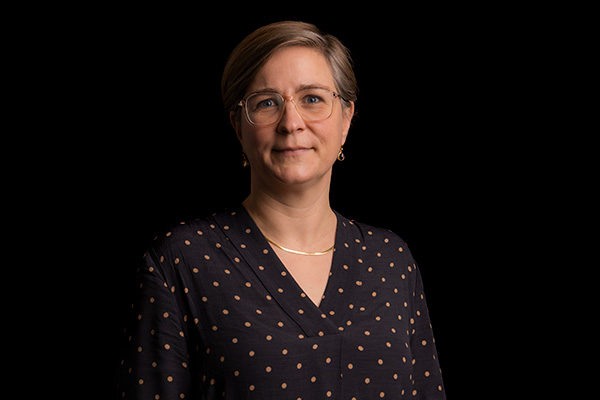Maja Hojer Bruun
Research leader

Project title
Automated Expertise: Artificial intelligence and algorithmic systems as inter-professional work practices
What is your project about?
Artificial intelligence and algorithmic systems to support professional expert assessment and decision-making in the public sector are being intensely developed in these years. Some academics and debaters envisage that professional expertise can be automated. Others point out that biases may be reproduced and discrimination reinforced, or that other ethical, political or legal problems will emerge. Too few empirical studies have been carried out of such algorithmic systems in practice. Through three ethnographic case studies, in health, education and urban planning, this project investigates what happens when developers of algorithmic systems collaborate with practitioners from different professional backgrounds on AI systems. The question is what new notions of professionalism and expertise arise when AI developers and different professional practitioners collaborate.
How did you become interested in your particular field of research?
I have always found it exciting to take anthropology in new directions and to investigate classic anthropological issues in new fields, with new methods and in new forms of collaboration. In recent years, I have focused on digital technologies and the development of human-centred technology. Together with talented colleagues, I have built an international research network for anthropology of technology, which has revived and renewed a strong research tradition in anthropology. In that context, my interest in artificial intelligence and algorithmic systems arose. It is important to engage with humanistic and ethnographic studies in the exploration of new technologies in order to gain insight into people's values, expectations and everyday life, so that research and social debate are not driven by technical utopias or dystopias.
What are the scientific challenges and perspectives in your project?
We know from research into learning in organisations that interdisciplinary collaboration requires common knowledge and relational expertise. The relational turn in research into professional learning emphasizes that knowledge and expertise are not simply something that individual actors ”have” and “apply”. Professionalism develops in relationships between professionals and technologies during collaboration. However, we do not know enough about how interdisciplinary collaborations take place in the development of new machine learning algorithms. They can be difficult to comprehend, even for the technical developers. A comparison of three specific case studies will create new knowledge about these collaborations among practitioners.
What is your estimate of the impact, which your project may have to society in the long term?
Technology development is not reserved for the technical sciences, but requires collaboration between many different researchers and practitioners, especially if we want to develop socially responsible artificial intelligence systems. In this context, responsible AI means that the human-technology systems have the planned effects, and that unintended, often invisible consequences are not overlooked. My research will point to a number of challenges when professional practitioners from three very different domains collaborate with AI developers on machine learning algorithms to support concrete tasks. Under what conditions can artificial intelligence be beneficial? What kinds of knowledge and expertise are needed? And not least: How can new knowledge about all this be incorporated into the future education and training of professionals?
Which impact do you expect the Sapere Aude programme will have on your career as a researcher?
The Sapere Aude grant allows me to build a research group in professional learning and expertise in relation to new technology, especially in relation to digital technologies, datafication and artificial intelligence. The research group will be a part of and contribute to the interdisciplinary research environment at DPU and the research program Future Technology, Culture and Learning. We will collaborate with some of the best groups internationally and will, among other things, go on longer research stays in Oxford, London and Helsinki.
Background and personal life
I was born in Germany and raised among the Danish minority in South Schleswig with a German father and a Danish mother. I have four children and live with my husband and my family in Aarhus. I spend my free time with family and friends, and if I have the chance, I practice yoga and Pilates or listen to a good audiobook or podcast while going for a walk along the beach.
View all research leaders here
Research institution
Aarhus University
Research field
Anthropology
City of your current residence
Aarhus
High school
Duborg-Skolen, Flensburg
